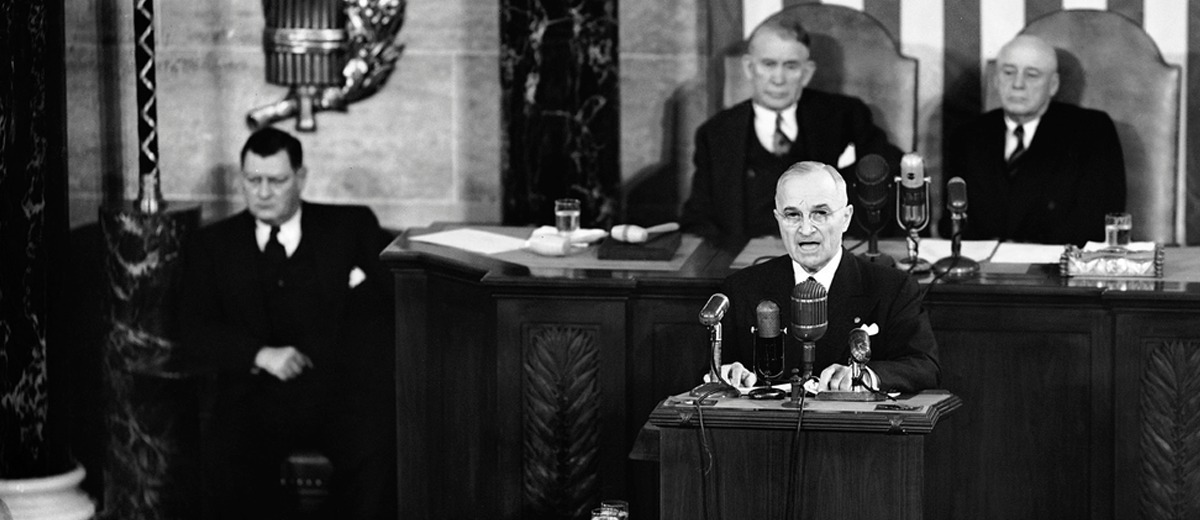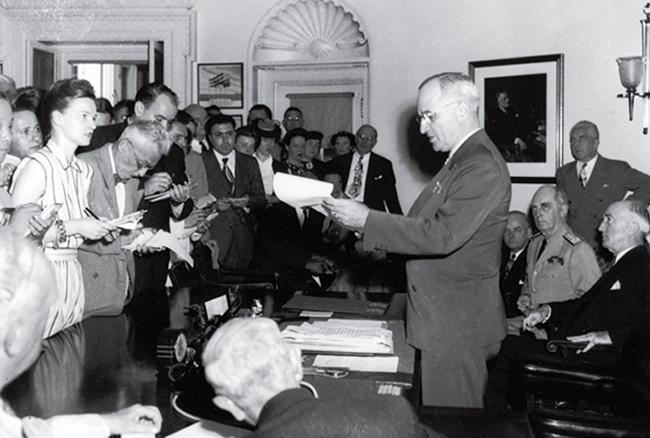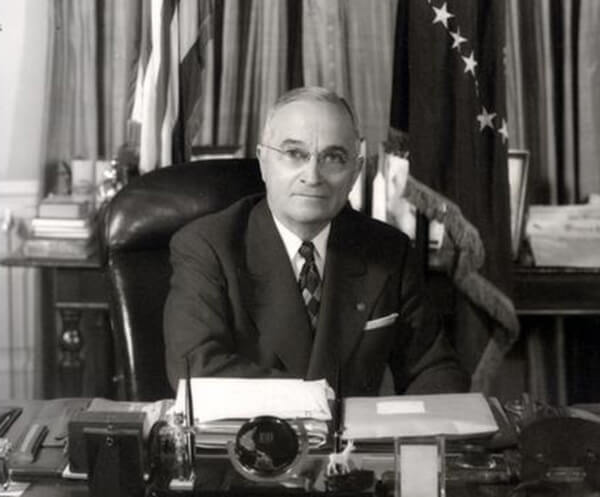Historic Speeches | January 5, 2024
President Truman’s “Fair Deal” Speech
On January 5, 1949, President Harry S. Truman announced, in his State of the Union address, that every American has a right to expect from our government a fair deal. Truman’s “Fair Deal” was an ambitious set of proposals put forward by U.S. President Harry S. Truman to Congress in his January 1949 State of the Union address. This single historic speech encapsulates the entire domestic agenda of the Truman administration, from 1945 to 1953.

This Day in History | July 26, 2022

The National Security Act of 1947 at 75 Years
By William Inboden, executive director of the Clements Center for National Security and associate professor of Public Policy and History at the LBJ School of Public Affairs
Seventy-five years ago, on July 26, 1947, President Harry S. Truman signed into law the National Security Act of 1947. The scholar Douglas Stuart has rightly called it “the law that transformed America.” Some of the most important institutions of America’s national defense and international leadership, including the National Security Council, Central Intelligence Agency, Department of Defense, and Air Force, all trace their birth to this one law.[1]
Online Exhibit: 75th Anniversary of the Marshall Plan | June 5, 2022
75th Anniversary of the Marshall Plan
June 5, 2022 marked the anniversary of a speech that altered world history. Secretary of State George C. Marshall, who had been a five-star general in World War II, was at Harvard to receive an honorary degree and deliver the commencement address. In unadorned remarks – and with little fanfare – he laid out a plan that would redefine U.S. foreign policy and transform the modern world. To mark the 75th anniversary of the Marshall Plan and share the rich historical resources archived at the Harry S. Truman Library and Museum, the Truman Library Institute has partnered with the German Marshall Fund of the United States to highlight the achievements of one of the most important American diplomatic initiatives of the 20th century. Commemorative exhibits are on display at GMF’s headquarters in Washington, D.C., highlighting the post-war crisis, President Truman’s recovery program, and the beginning of a new epoch in western Europe. Read More
Historic Headlines | August 13, 2021
V-J DAY | AUGUST 14, 1945
“I HAVE RECEIVED THIS AFTERNOON A MESSAGE FROM THE JAPANESE GOVERNMENT…”
At 7 p.m. on Tuesday, August 14, 1945, President Truman announced to reporters gathered in the Oval Office that Japan had surrendered unconditionally to the Allies, effectively ending World War II. Read More

TRU History | August 6, 2021
Surplus WWII-Era Purple Hearts Still Being Awarded
A half-million medals are a reminder of the lives not lost in the Pacific Theater during World War II.
By D. M. Giangreco
Excerpted from “75 Years Later, Purple Hearts Made for An Invasion of Japan are Still Being Awarded,” originally published by George Washington University’s History News Network.

The Displaced Persons Act of 1948 | April 29, 2019
On June 25, 1948, Harry S. Truman signed the Displaced Persons Act of 1948. In its most basic sense, the act would assist in the resettlement of thousands of European refugees (largely through granting American visas) who had been displaced from their home countries due to World War II. Read More


